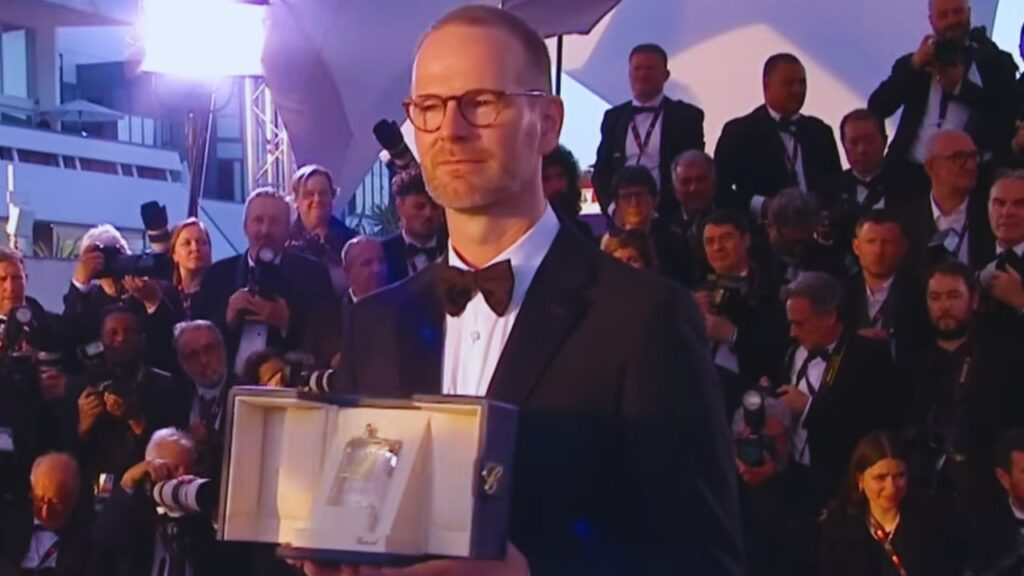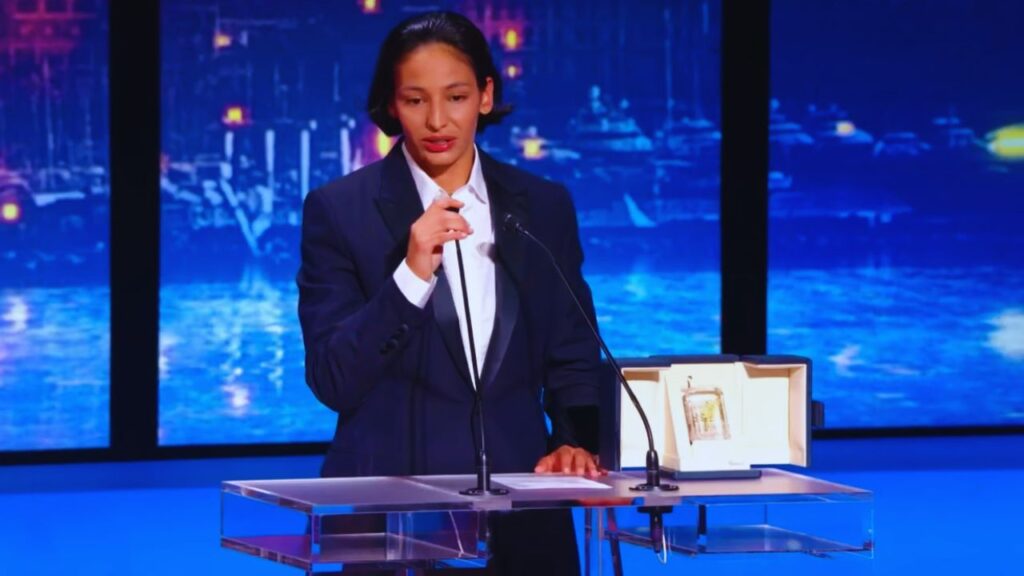The 78th Cannes Film Festival concluded in grand fashion this weekend in France, celebrating international cinema with a dazzling award ceremony that saw Iranian filmmaker Jafar Panahi take home the coveted Palme d’Or. Panahi’s win marked both a personal triumph and a politically significant moment in the festival’s history, capping off a competition that had critics sharply divided.
A Politically Charged Victory: Palme d’Or for Jafar Panahi
The highest honor of the festival, the Palme d’Or, was awarded to It Was Just an Accident (Un Simple Accident), directed by acclaimed Iranian auteur Jafar Panahi. This deeply personal and symbolic film explores the trauma and surveillance experienced by former political prisoners, with an undertone that reflects Panahi’s own recent experiences.
Panahi, who was recently released from detention in Iran, had previously been banned from leaving the country and making films. His appearance at Cannes marked his first public attendance at the festival since 2003, and his win was met with prolonged applause and standing ovations. This was Panahi’s second major recognition at Cannes, following his 1995 Camera d’Or win for The White Balloon.
In his acceptance speech, Panahi thanked the jury for recognizing not only his film but the “struggles of artists living under oppressive regimes.” His award, while welcomed by many, has stirred debate among cinephiles and critics over whether the Palme d’Or should prioritize artistic merit or symbolic importance.
“This Palme may be political, but it reflects our shared belief in the power of free expression,” said jury president Juliette Binoche during the closing speech.
Grand Prix for Joachim Trier’s “Sentimental Value”
The Grand Prix, Cannes’ second-most prestigious award, went to Joachim Trier for his film Sentimental Value. This Norwegian drama tells the story of an acclaimed actress who reconnects with her estranged father, a reclusive poet, during a trip to their countryside home. The film captivated audiences with its emotional depth and subtle commentary on generational reconciliation.
Although Sentimental Value was widely tipped to win the Palme d’Or by critics and festival insiders, it ultimately settled for runner-up, fueling discussions about the jury’s decision-making process. Trier, best known for his 2021 film The Worst Person in the World, remains a festival favorite.
Jury Prize Split: “Sirât” and “Sound of Falling” Tie for Third Place
In a rare decision, the Jury Prize was shared by two films:
- Sirât by Oliver Laxe, a hypnotic meditation on youth, death, and spiritual transformation set within Morocco’s underground rave scene.
- Sound of Falling by Mascha Schilinski, a German-language film blending psychological drama with experimental storytelling.
Sirât was lauded for its immersive visuals and existential themes, while Sound of Falling won praise for its haunting atmosphere and poetic narrative. Both films were seen as daring, and their joint recognition highlights Cannes’ appreciation for bold cinematic voices.
Best Director: Kleber Mendonça Filho for “The Secret Agent”
Brazilian director Kleber Mendonça Filho won Best Director for The Secret Agent (O Agente Secreto), a gripping political thriller set in 1980s Brazil during the country’s final years of military dictatorship. The film’s tight pacing, layered characters, and chilling tone resonated with international audiences.
Mendonça Filho, already known for Aquarius and Bacurau, continues to prove his mastery in exploring socio-political themes through genre storytelling.
Best Actor: Wagner Moura in “The Secret Agent”
Acclaimed Brazilian actor Wagner Moura received the Best Actor award for his compelling performance as Marcelo, a schoolteacher secretly working against the regime. Moura, best known for portraying Pablo Escobar in Narcos, delivered a restrained yet emotionally charged performance that anchored the film’s tension.
Best Actress: Nadia Melliti in “The Little Sister”
Nadia Melliti won Best Actress for her breakout performance in The Little Sister, directed by Hafsia Herzi. Melliti portrayed a French-Tunisian teenager navigating family pressures, identity, and mental health in suburban Paris.
Adapted from the semi-autobiographical novel by Fatima Daas, the film was praised for its honesty and subtlety. Melliti’s nuanced portrayal of a Muslim girl torn between religious expectations and personal freedom earned widespread acclaim.
Best Screenplay: Jean-Pierre and Luc Dardenne for “Young Mothers”
Veteran Belgian filmmakers Jean-Pierre and Luc Dardenne took home the Best Screenplay prize for Young Mothers (Jeunes Mères). The film focuses on the lives of teenage mothers living in a state-run shelter, highlighting their hopes, hardships, and dreams in a world that often overlooks them.
The Dardennes, who previously won the Palme d’Or twice, returned with a story that stayed true to their minimalist, humanist style.
Special Jury Award: “Resurrection” by Bi Gan
Chinese director Bi Gan received a Special Jury Award for his film Resurrection. Known for his visually poetic style, Bi’s latest work weaves elements of memory, mysticism, and metaphysics into a tale of grief and renewal. This is Bi Gan’s most ambitious film since Long Day’s Journey Into Night and was recognized for its experimental structure and dreamlike cinematography.
Caméra d’Or: “The President’s Cake” by Hasan Hadi
The Caméra d’Or, awarded to the best first feature across all Cannes sections, went to Iraqi filmmaker Hasan Hadi for The President’s Cake. The film is set in Baghdad during the 1990s and follows a young boy trying to bake a birthday cake for Saddam Hussein amid sanctions and scarcity.
Hadi’s sensitive and semi-autobiographical debut is the first Iraqi film to win this prize, marking a significant milestone for Middle Eastern cinema.
Special Mention: “My Father’s Shadow” by Akinola Davies Jr.
The jury gave a special mention to My Father’s Shadow by Nigerian-British director Akinola Davies Jr. The film, deeply personal and poetic, explores themes of diaspora, intergenerational trauma, and identity. As the first Nigerian film to premiere at Cannes, it broke ground and left an emotional impact on many festivalgoers.
Un Certain Regard Awards: Celebrating Bold and Innovative Voices
The Un Certain Regard section, known for showcasing daring storytelling, featured some of the most original works of this year’s festival. The awards were:
- Un Certain Regard Prize: The Mysterious Gaze of the Flamingo by Diego Céspedes
- Jury Prize: A Poet (Un Poeta) by Simón Mesa Soto
- Best Director: Arab & Tarzan Nasser for Once Upon a Time in Gaza
- Best Actress: Cleo Diára for I Only Rest in the Storm (O Riso e a Faca)
- Best Actor: Frank Dillane for Urchin
- Best Screenplay: Pillion by Harry Lighton
These selections underline Cannes’ commitment to recognizing diverse cinematic perspectives from underrepresented communities.
Jury Members and Final Observations
The 2025 Cannes jury was led by French actress Juliette Binoche and included an eclectic group of global artists and storytellers:
- Halle Berry (USA)
- Payal Kapadia (India)
- Alba Rohrwacher (Italy)
- Leïla Slimani (Morocco/France)
- Dieudo Hamadi (DR Congo)
- Hong Sangsoo (South Korea)
- Carlos Reygadas (Mexico)
- Jeremy Strong (USA)
This diverse jury reflected the global nature of cinema today, but their decisions, especially awarding the Palme to Panahi, drew both praise and criticism. Some insiders claimed that Sentimental Value was the initial frontrunner until Binoche pushed for It Was Just an Accident, citing Panahi’s bravery and what his film symbolized in today’s world.
Critics like those from The Guardian and IndieWire expressed mixed feelings, stating that Panahi’s win, while morally resonant, overshadowed more cinematically superior entries.
A Festival of Triumphs and Controversies
Despite a temporary power outage during the closing ceremony—later attributed to technical sabotage—the festival concluded successfully. Power was restored quickly, and the awards were delivered without further disruption.
Festival distributor NEON celebrated its sixth consecutive Palme d’Or win, continuing its dominance in backing cutting-edge global cinema.
The Cannes Film Festival 2025 was a showcase of bravery, beauty, and cinematic experimentation. While not without its controversies, the awards highlighted global voices and brought attention to films that transcend borders and speak to humanity’s deepest fears, dreams, and desires.
For cinephiles, critics, and casual viewers alike, this year’s winners represent stories that deserve to be seen, discussed, and remembered.
The Information is Collected from Variety and IMDb.




































